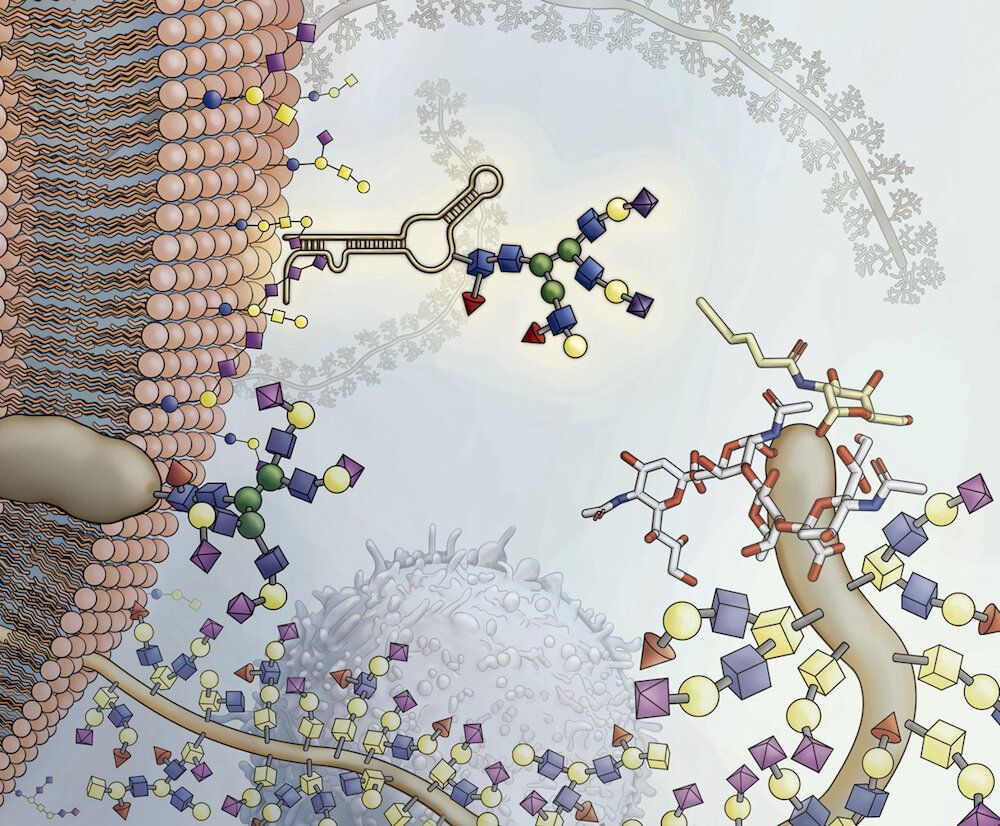A literature search revealed that one of the Siglec molecules had been previously linked to the autoimmune disease lupus. Finding connections between these different kinds of molecules starts to fill in a new and emerging picture of biology, Bertozzi says. That picture may look something like this: RNA hangs out on the cell surface, decorated with sugars. These sugars stick to Siglec proteins that help the immune system distinguish friend from foe.
In a surprise find, scientists have discovered sugar-coated RNA molecules decorating the surface of cells.
These so-called ‘glycoRNAs’ poke out from mammalian cells’ outer membrane, where they can interact with other molecules. This discovery, reported May 17, 2021, in the journal Cell, upends the current understanding of how the cell handles RNAs and glycans.
“This was probably the biggest scientific shock of my life,” says study author Carolyn Bertozzi, a Howard Hughes Medical Institute Investigator at Stanford University. “Based on the framework by which we understand cell biology, there’s no place where glycan sugars and RNA would physically touch each other.”
